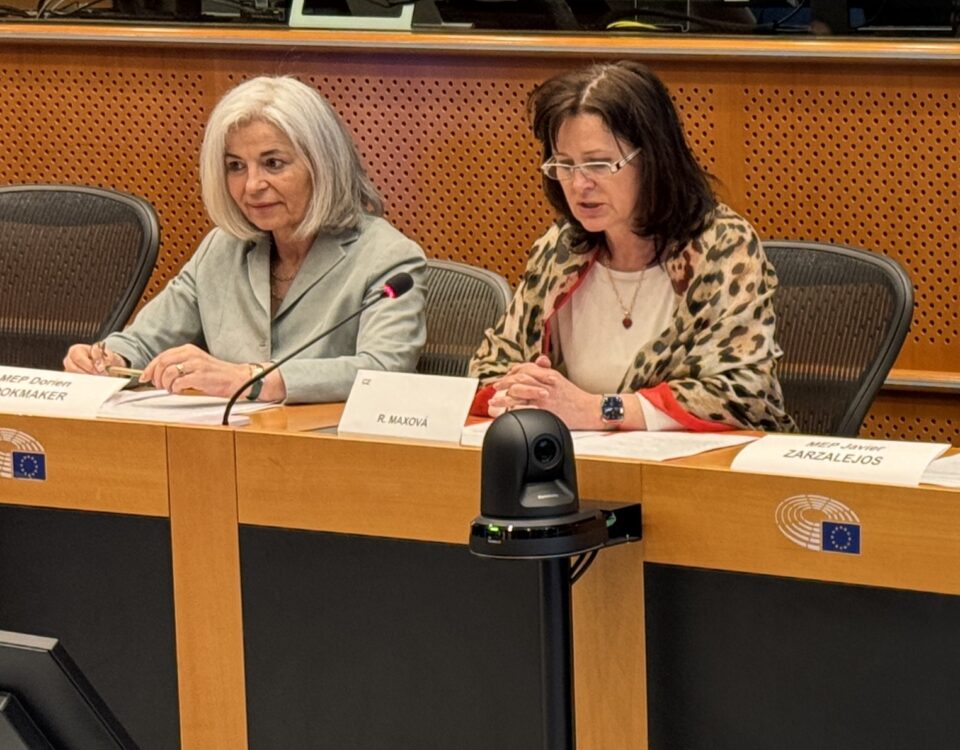
Roberta Metsola Re-Elected as European Parliament President: A Legacy of Leadership and Commitment to Democratic Values
July 28, 2024
Über Mut by Rita Süssmuth – A Powerful Manifesto for Courage and Democracy
August 23, 2024From June 6-8, 2024, the European Bars Association (FBE) General Congress, titled “The Lawyer of the Future,” took place in Malaga. This event brought together leading voices from the legal profession to deliberate on the critical need for implementing gender quotas and targets within Bar Associations and law firms. Despite women outnumbering men in the legal profession, a glaring under-representation of women in leadership positions persists.

The Panel Discussion
The discussion, moderated by Michael Griem, the 2nd Vice President of the European Bars Federation (FBE), included prominent figures such as Fernanda de Almeida Pinheiro, President of the Portuguese Bar Association; Maria Slazak, President of the European Association of Lawyers (AEA); Sara Chandler, former President of the FBE; and Flor Carrasco, Vice Dean of the Malaga Bar Association. These leaders shed light on the striking disparity between the number of women in the legal profession and their representation in leadership roles.
The Gender Imbalance in Leadership
Fernanda de Almeida Pinheiro, Maria Slazak, Sara Chandler, and Flor Carrasco all recognized the predominance of men in leading positions within Bar Associations and law firms at the partner level. They identified traditional educational practices and societal expectations as contributing factors to this discrepancy. Boys and girls are often encouraged to pursue different paths from a young age, leading to a gendered division in career progression.

The Case for Gender Quotas
The panelists unanimously agreed that proactive measures are necessary to rectify this imbalance. They advocated for the introduction of binding gender quotas to ensure a fair representation of women in leadership positions. While there was consensus on the need for quotas, the speakers had varied perspectives on the specifics of these regulations. The necessity of promoting women through structured and enforced measures was a common theme, reflecting a shared commitment to fostering gender equality in the legal sphere.
Contributions from WNC Delegation
A delegation from the Women’s Network for Change (WNC) was also invited to join the discussion panel. Their participation further enriched the dialogue, bringing diverse perspectives and reinforcing the importance of a collective effort in addressing gender disparities in the legal field. The WNC delegation emphasized the need for global solidarity and shared strategies in advocating for gender equality.
Moving Forward
The deliberations concluded with a clear message: achieving gender equality in the legal profession requires deliberate and decisive action. Promoting women through binding quotas is a critical step towards rectifying the current imbalance. However, the journey towards true equality also involves addressing the broader societal and educational factors that contribute to gender disparities. The panelists’ insights and their powerful testimony serve as a reminder of both the progress made and the challenges that remain in the global quest for gender equality.
In conclusion, the discussion highlighted the importance of continued advocacy and concrete measures to promote gender equality in the legal profession. By implementing gender quotas and addressing the root causes of under-representation, the legal sphere can move closer to achieving true gender parity. The FBE General Congress in Malaga underscored the urgent need for these reforms, marking a significant step forward in the ongoing effort to ensure equal representation and opportunities for women in the legal field.




